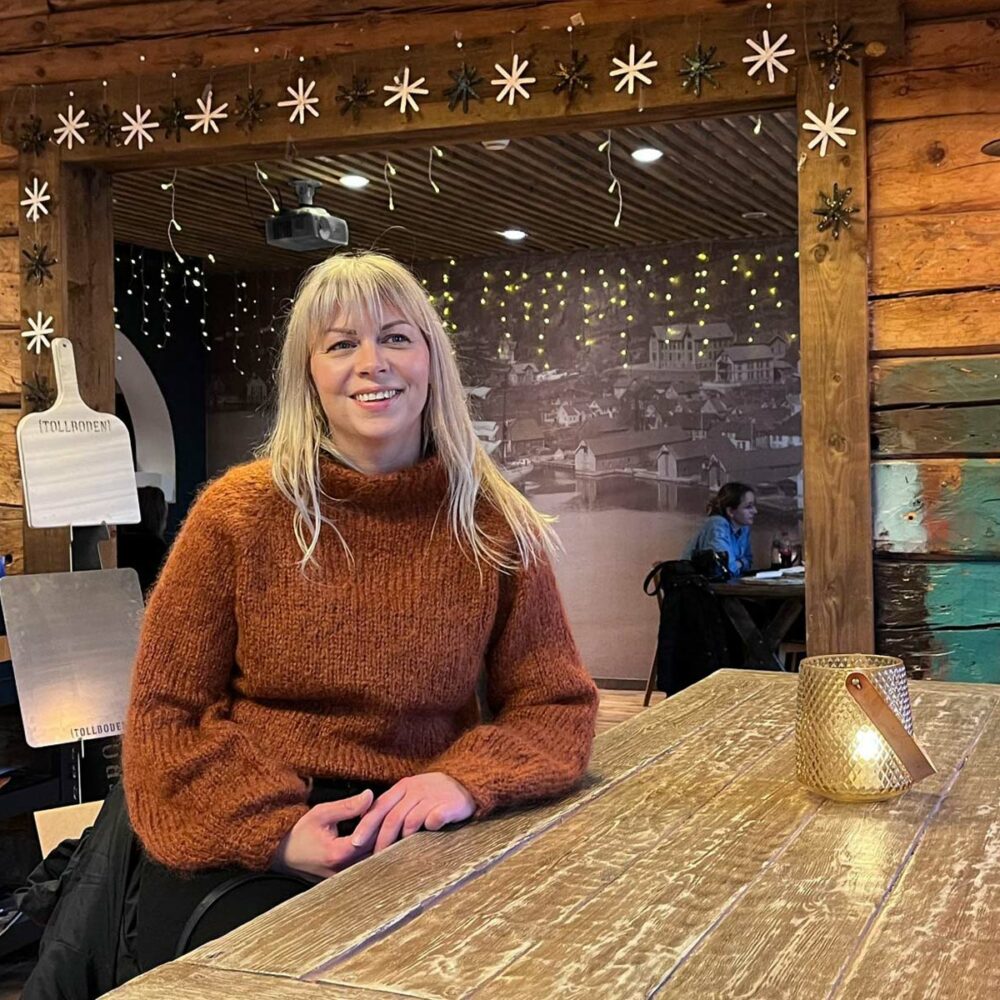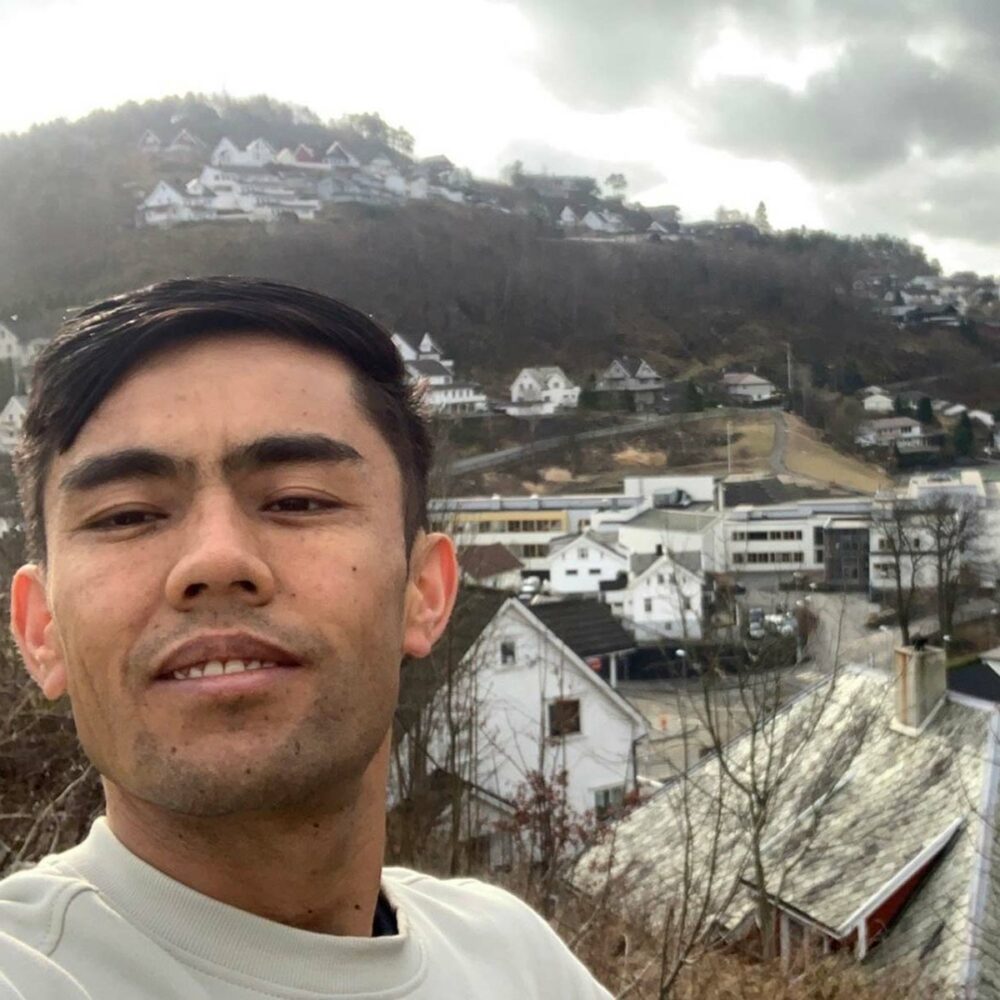When Johanne Haneberg turned 18, she left the small town where she was born and raised, and went to the big world. A few years later, she decided that it might be just as well to live in Flekkefjord again, and came home.
Name: Johanne Haneberg (26)
From: Flekkefjord
Through: New York, Kristiansand and Oslo
Stop by: Flekkefjord
Next station: ?
A few years have passed since Johanne Haneberg began studying community nutrition. Last year it was time to start a master's thesis on ultra-processed food. She was able to collect information about how much knowledge Norwegians have about food that has been processed via the internet. Then she was faced with the choice of whether she should continue to live in a corona-affected Oslo, and follow the home education from her apartment, or move back home to Flekkefjord. The choice was the small town where she knew that life went on more or less as normal despite the corona.
- It was an upheaval to move back, but I feel very good here, she says to Agder.
- I have many old friends in Flekkefjord, but during this year I have made several new acquaintances, friends and contacts. It has turned out that Flekkefjord has an incredible number of creative and inspiring people who I appreciate!

Big network in a small town
- In a small town where everyone knows each other, I have a kind of support network of people who care about me, look after me and want me well, states Johanne Haneberg.
The proximity to nature is also something Johanne appreciates, and she says that she mostly spends her free time outside, whenever possible. It's nice to be home with her parents again, but she likes to walk the fifty steps that separate her from the forest to take a walk in nature.
She thinks Flekkefjord is a nice place, but says that the complex metropolitan environment in Oslo offers more opportunities. This has a lot to say when she studies community nutrition - a field where she learns about how to prevent health problems.
- In the capital, there are several relevant job positions for my field of study, in contrast to my home town where, per now there is no one at all.

You are what you eat
Her expertise is in preventive nutrition and public health. It is about informing people about how to take care of their health, as well as creating a "culture" that makes it easier to do just that.
As her master's thesis shows, she is particularly interested in how the food we eat affects our health. She would like to work on raising awareness around this topic.
- Norwegians like to choose products with keyholes, usually eat home-cooked food, and naturally find it easy to believe that they have a healthy diet. But if they turned the packaging over and read the ingredients list, they would not understand very much of it, points out Haneberg.
Many of the words that you do not understand are names of substances that are not necessarily so good for the body. She therefore wishes more people had access to knowledge about food, and knew what steps they can take to be sure that the food they choose is actually good for them.
- The main problem with ultra-processed food is that it often consists of nutrients that the body cannot benefit from in the same way as raw materials, and that this in turn leads to adverse health-related consequences.
When the modern food industry grew, there was neither much research nor focus on the consequences this could entail for public health. As a result, much of what society believes about healthy eating is simply wrong error, claims Johanne.
She wants to do what she can to make people understand more about how eating habits affect health.
Dream scenario
At the same time as Johanne is busy writing her master's thesis in ultra-processed food, she talks to locals who work in the public and municipal sector, and hears what opportunities there are for her. She wants to find out what Flekkefjord dares to invest in in the future: Now there are no relevant positions for Johanne, but it doesn't necessarily have to be that way.
- If I were to work here in Flekkefjord, it would probably be interdisciplinary. I imagine that one day I would be sent out to the old people's home to help them facilitate good nutrition among the elderly, and the next day I could perhaps be sent out to a kindergarten where they wondered what kind of food the children need to give them energy and nourishment to play and learn, says Johanne.
She describes this as a dream scenario for how she could contribute to the local community.
- Flekkefjord has a lot of nice things to offer. There have definitely been big changes in recent years. There are several young people who have come here to contribute. It has clearly influenced the business world in a positive direction. I also have many female friends who absolutely do not want to move away from their hometown. They enjoy themselves very well in Flekkefjord. It is an attractive place for young people when arrangements are made for them to be able to work and live here.
Seizing opportunities
The question is whether Johanne will find a job in Flekkefjord. She will probably have to go to Oslo again, where there are several positions she can apply for.
- Fortunately, I have not attached myself to any place so that I cannot imagine living anywhere else. I am flexible, says Johanne.
But there is one place that calls out to her, a place where she has lived for a study semester, and where she felt that she was truly herself. Deep down, she still longs for it.
- I enjoyed myself in New York. Ever since I moved away from there, I have been more or less consciously looking for an opportunity to return there. If something relevant suddenly comes up, I think I'll take the chance and go there. There is of course a big difference from Flekkefjord to New York, but both places have their own unique charm.

